Humans are currently living longer than ever before.
With advancements in healthcare, technology, and knowledge, we have begun to work out what it takes to maintain health across the lifespan, thus enhancing longevity in the process.
Interestingly, there is some recent research indicating that longevity may not only be a result of your lifestyle habits, but also your longevity genes.
What are longevity genes?
As their name so aptly suggests, longevity genes are just that – genes that have been linked to a longer lifespan.
It is important to note that the study of human genes is still very much a ‘developing science’. Although this last decade we have made some great strides when it comes to human gene identification, we still have a long way to go.
This is because genes do not work in isolation. It is therefore very unlikely that a single gene will ever be solely responsible for the onset of a certain disease, or a specific change in your body.
This is most likely dictated by the how several different genes interact with each other in response to a variety of environmental stimuli.
However, that is not to say that genes do not impact your lifespan.
In fact, it has been estimated that around 25% of the variation in human lifespan may be dictated by specific genetic factors (Martin, 2007; Sebastiani, 2017).
How do genes affect longevity?
As I alluded to above, several different genes have been linked to the aging process and an increase in longevity.
A gene called ABO, which ultimately determines your blood type has also been shown to impact upon disease prevention. Another called CDKN2B has been shown to regulate cell division, which is believed to play a role in cancer prevention. And there is one called, APOE, which is linked to the onset of Alzheimer’s disease and an early death.
More recently, researchers have also stumbled across a gene called SIRT6 which appears to be responsible for more efficient DNA repair, and subsequently, a longer lifespan (Rochester, 2019).
While each of these genes work by different pathways, they ultimately affect longevity the same way – they help stave off cellular degradation and disease to keep you healthier, longer.
Related Article: Why people in “Blue Zones” Live longer
How to slow down the aging process?
Now, it is important to note that if you have all the right longevity genes, that does not necessarily mean you are going to live a long time. Similarly, if you do not have any, that does not mean that you will die young.
In essence, your genes dictate how your body reacts to your environment. Even if you happen to win the genetic lottery and have the four gene variants mentioned above, you will not live a long time if your lifestyle is trash.
What it does mean is that if you choose to optimize your lifestyle, then you will probably live longer than someone without those genetic variations.
And of course, the reverse is also true.
Even if you miss out on those genetic variations, you can still slow down the aging process and optimize your health span by living a healthy life. To be honest, I would go as far to say that living a healthy lifestyle is the most important factor, whereas having good genes is just a bonus.
Which begs the question – how can you slow down the aging process?
How does exercise slow down aging
When it comes to holding off father time, exercise is integral (Gremeaux, 2012).
Aging is typified by several physical changes that impact upon your ability to function daily. These include declines in cardiovascular fitness, strength, endurance, lung capacity, neuromuscular control, balance, and coordination.
As these factors decline with age, they contribute to an increased risk of disease and illness, and a loss of independence – all of which can culminate into a much shorter lifespan.
In fact, evidence would indicate that regular physical activity is associated with a 30% reduction in all-cause mortality, no matter your age, occupation, gender, and ethnicity – which is pretty impressive if you ask me.
Now, when it comes to choosing the best exercise to slow down aging, it is not limited to just one (Pedersen, 2019).
It is well established that a combination of cardiovascular and resistance exercise will offer you the most benefits with regards to health and longevity.
Within this, you should strive to achieve a minimum of 150 minutes of cardiovascular exercise per week – although ideally increasing this to above 300 minutes per week is believed to have even greater benefits,
Similarly, because weight training prevents many of the functional declines that occur with advanced age, you should strive for 2-3 weights training sessions per week. Try and build your program around core fundamental exercises like squats, lunges, deadlifts, presses, and rows, and you will be ticking all of the boxes.
Nutrition and aging
In addition to exercise, what and how you eat can impact your longevity in a big way (Fontana, 2015).
Taking a simple view of it, eating too much (and too often) greatly increases weight accumulation and adiposity. Over time, this contributes to increased inflammation, and risk of cardiovascular and metabolic disease.
All of which damage your cells, expediting the aging process.
Contrary to eating too much, consuming inadequate nutrients can also cause a loss of cellular function and decline in cell health. If unaddressed, this can contribute a variety of age-related diseases, while accelerating age related declines in mental and physical capacity.
All of which indicates that if you want to live as long as possible, you should avoid eating too much junk food, and build your diet around whole grains, vegetables, seeds, nuts, poultry, meat, and fruit.
Fasting and longevity
And lastly, we have fasting.
Over the last few years we have seen intermittent fasting become all the rage amongst health enthusiasts as a way to improve health, promote weight loss, and promote longevity – and evidence would suggest that it is a worthwhile pursuit.
Research has indicated that fasting can improve the health and function of your cardiovascular and metabolic systems, and prevent cellular dysregulation. Combined, this means a reduced risk of heart disease, diabetes, and cancer (Goldhamer, 2002; Horne, 2013; Brandhorst, 2016).
And this is the result of a cellular process known as autophagy (Bagherniya, 2018).
Autophagy describes the process by which old and damaged cells are broken down and used to create new healthy cells.
These cells function much better than their older counterparts, which improves health. Also, because they are ‘younger’, they are also less likely to become cancerous and start replicating uncontrollably.
With this in mind, when you fast, you starve your body of nutrients. To accommodate this lack of nutrients, your body then upregulates autophagy so that it can create new cells as normal, albeit by using old and damaged cells instead of nutrients from food.
By causing improvements in cell health throughout your body, fasting essentially slows down aging at a cellular level (Hansen, 2018).
Practically, this would suggest that if you want to live longer, practicing intermittent fasting daily would be a good idea. Similarly, partaking in 2-3 longer fasts (i.e. 2-5 days) per year might also be a good option.
Related Article: Prolonged Fasting for Health & Longevity
Takeaways
Your genes have an inherent impact on your susceptibility to disease and other age-related declines in health and function – but they do not work alone.
In fact, I would argue that your lifestyle plays an even bigger role.
With that in mind, taking control of your life and ensuring you are doing everything you can to optimize your health is integral to living as long as possible. So, what are you waiting for?
References
Martin, George M., Aviv Bergman, and Nir Barzilai. “Genetic determinants of human health span and life span: progress and new opportunities.” PLoS genetics 3.7 (2007): e125.
Sebastiani, Paola, et al. “Four genome-wide association studies identify new extreme longevity variants.” Journals of Gerontology Series A: Biomedical Sciences and Medical Sciences 72.11 (2017): 1453-1464.
University of Rochester. “‘Longevity gene’ responsible for more efficient DNA repair.” ScienceDaily. ScienceDaily, 23 April 2019. <www.sciencedaily.com/releases/2019/04/190423133511.htm>.
Gremeaux, Vincent, et al. “Exercise and longevity.” Maturitas 73.4 (2012): 312-317.
Pedersen, Bente Klarlund. “Which type of exercise keeps you young?.” Current Opinion in Clinical Nutrition & Metabolic Care 22.2 (2019): 167-173.
Fontana, Luigi, and Linda Partridge. “Promoting health and longevity through diet: from model organisms to humans.” Cell 161.1 (2015): 106-118.
Goldhamer, Alan C., et al. “Medically supervised water-only fasting in the treatment of borderline hypertension.” The Journal of Alternative & Complementary Medicine 8.5 (2002): 643-650.
Horne, B. D., et al. “Randomized cross-over trial of short-term water-only fasting: metabolic and cardiovascular consequences.” Nutrition, Metabolism and Cardiovascular Diseases 23.11 (2013): 1050-1057.
Brandhorst, Sebastian, and Valter D. Longo. “Fasting and caloric restriction in cancer prevention and treatment.” Metabolism in Cancer. Springer, Cham, 2016. 241-266.
Bagherniya, Mohammad, et al. “The effect of fasting or calorie restriction on autophagy induction: A review of the literature.” Ageing research reviews (2018).
Hansen, Malene, David C. Rubinsztein, and David W. Walker. “Autophagy as a promoter of longevity: insights from model organisms.” Nat Rev Mol Cell Biol 19.9 (2018): 579-593.
You Might Like:
Ways to Improve Your Longevity Genes
Humans are currently living longer than ever before. With advancements in healthcare, technology, and knowledge,...Why people in “Blue Zones” Live longer
It is estimate that between 20 and 25% of your longevity is dictated by your...Does Obesity Increase Your Risk of Coronavirus?
We are currently living in a pretty interesting time. Inundated with bad news stories on...How Exercise Prevents Sickness
Everyone on the planet knows that exercise is good for them. In fact, over the...How Exercise Could Prevent Coronavirus
Everyone on the planet knows that exercise is good for them. In fact, over the...The Impact of Exercise During Cancer Treatment
Exercise and cancer are not two words that are said in the same sentence anywhere...Exercise Research is Underrepresented in Female Athletes
The research coming out of exercise science at the moment is some of the most...Opportunity Differences for Male and Females in Sports
Over the last 50 years we have come to the stark realization that when it...Gender differences in sport injury risk and types of injuries
As good as it is, sports are an undeniably dangerous activity. I mean, most of...Protocol for Breast Injuries in Female Athletes
The popularity of female sport has been increased at an incredible pace over the last...Cardiovascular effects of prolonged exercise
It is well established that cardiovascular exercise is one of the best ways to improve...Breast density, exercise, and breast cancer: What you need to know
Most people know that breast cancer is incredibly common – but what many people fail...What is prehab and why is it important?
If you have spent any time in the realm of health and fitness, then you...How to Live Longer: What You Need to Know
Ah, the age-old question: “how to live longer?” Something that has plagued our society since...Does CrossFit Induce Stress Urinary Incontinence?
Hunter Bennett CrossFit has fast become one of the most popular forms of exercise on...Outrunning Negative Body Image: Body Identity In Female Athletes
Hunter Bennett In the modern day, we are so caught up in appearances. Society places...The Autoimmune Athlete
Hunter Bennett Being an elite athlete poses a unique set of challenges that very few...How Hydration Affects Short Endurance Performance
Hunter Bennett Staying adequately hydrated has long been considered one of the most important aspects...Atrial Fibrillation, Exercise & Health
Hunter Bennett One of the biggest issues we modern society has to deal with is...Water and Hydration
Hunter Bennett Given that your body is approximately 60 percent water, it stands to reason...Menopause and Depression
Hunter Bennett Menopause is considered to be a time of great change. A time where...Endurance Athletes: Why Women Win In The Long Run
Hunter Bennett It is commonly thought that when it comes to athletic endeavors, men have...Alzheimer’s Disease- Could Irisin Be the Cure?
Hunter Bennett The one thing that strikes fear into the hearts of most people on...Virtual Reality Exercise
Jessica Gillespie-Friesen What if the secret to boosting your performance at the gym was simply...Do Genes Dictate Your Health?
Hunter Bennett I would put my money on the fact that the vast majority of...Blood Flow Restriction Training
Hunter Bennett Becoming fitter, stronger, and more functional is an endeavor that many of us...Generation 100: The 3 Year Follow Up
Hunter Bennett For those of you who have been with us here at Forever Fit...Marijuana & Essential Tremor: A Natural Treatment
Hunter Bennett Most people become suspicious when they hear the words ‘alternative medicine’ – however...Muscle Growth and Loss
Dayton Kelly Muscle growth may not be entirely lost following detraining: a paradigm shift in...Could a Carb Mouth Rinse Be the Next Best Performance Booster?
Evan Stevens The last thing an athlete wants is to feel like they have no...How Exercising in the Heat Affects Women on Birth Control
By Alyssa Bialowas Exercising in hot conditions is commonplace for both recreational and competitive athletes,...The Truth Behind Antioxidants & Exercise Induced Muscle Damage
Alyssa Bialowas Elite athletes are prone to injury and muscle damage, especially those who compete...Reduce Cigarette Cravings with Acute Exercise
Catherine O’Brien It is no secret that smoking is a major health hazard that significantly...Effects of Outdoor Exercise
Catherine O’Brien Why Does Exercising Outdoors Feel So Much Better? I have always been a...Exposure to Sunshine May Alter Your Metabolism
Evan Stevens When I was younger and first starting out on my nutrition journey, I...The Role of Biofeedback in VO2 Max Testing
A Review by Alyssa Bialowas There are various approaches attempting to modify cardiovascular reactivity in...Cross-Exercise: Which Training Program is Better?
A Review by Alyssa Bialowas Cross-education training is defined as a neurophysiological phenomenon where there...The Most Effective Coping Technique for Competition Performance
A Review by Alyssa Bialowas An athletes’ ability to handle their nerves and perform under...Effect of Endurance Training on Lactate Threshold
A Review by Alyssa Bialowas Tools for aerobic fitness evaluation in endurance training are used...Vigorous Exercise May Prevent Predisposed Diabetes
A Review by Alyssa Bialowas The kidneys are an essential organ that have many functions,...The Trick Stress Plays on Your Metabolism
Gillian White – BSc, MSc., PhD Candidate A sheep in wolf’s clothing: The mean trick stress...The Elevation Training Mask – A Competitive Advantage
A Review by Alyssa Bialowas Elite and well-trained athletes search for the competitive edge in...Can Head Cooling Increase Aerobic Performance In The Heat?
A Review by Alyssa Bialowas Thermoregulation and managing heat stress is critical for aerobic and...10 Ways To Boost Your Immunity
Dayton Kelly The following was adapted from a combination of speeches given at the European...Vestibular Migraines: Could Exercise Be The Answer?
Catherine O’Brien My last article highlighted the inverse relationship between headaches and VO2 max levels...The Effects Of Altitude Training On Competitive Swimmers
A Review by Alyssa Bialowas Hypoxic training, also known as altitude training (training at heights...Are Thermogenic Dietary Supplements Safe & Effective For Resistance Training?
A Review by Alyssa Bialowas Thermogenic dietary supplements are multi-ingredient sports supplements designed to improve...Don’t Resist Resistance Training
Alyssa Bialowas Introduction The strength and thickness ratio of shoulder stabilizing muscles is essential to...Do Children Perform Better In Sports Based On Coach’s Gender?
Alyssa Bialowas Introduction Coaching is a structured practice of development that helps another individual...Are You At Risk For Skin Infection?
Alyssa Bialowas It is challenging to stay healthy in the wintertime; gyms and community centers...Plyometric Vs Skills-Based Conditioning For Volleyball Players: How Each Stacks Up
Alyssa Bialowas There is a lack of studies on the effectiveness of plyometric training on...High Volume Training Affects Immune System In Endurance Athletes
Alyssa Bialowas Exercising regularly and moderately improves your overall health, which is said to help...Autoimmune Illnesses: How To Move When Your Immune System Has Gone Rogue
Gillian White, MSc, Ph.D. (Candidate), University of Toronto, Graduate Department of Exercise Sciences Autoimmune disorders...Holidays Are Not The Only Contributor | 3 Ways To Avoid Annual Weight Gain
Katie Rose Hejtmanek, PhD Anthropologist CrossFit Level 1 Trainer It is that time of year...Clash of The Titans – Intervals vs Endurance (Part 1)
Evan Stevens At Fast Twitch Grandma we’ve done a lot of research into High Intensity...Smells Like Teen Spirit: The Ever-Changing Adolescent Brain
Julia C. Basso, PhD When I look back on my teenage years, I don’t remember...Sense & Movement – A Surprisingly Unique Phenomenon
Julia C. Basso, PhD Reporting from the 2017 Annual Society for Neuroscience Meeting The ability...Competitive-anxiety & Its Effect On Heart Rate In Swimmers
By Alyssa Bialowas Competition has always been a natural driver in sport. Many athletes face...Roller Skiing Predicts Youth Cross-Country Skiing Performance
Alyssa Bialowas Cross-country skiing has gained popularity as one of the most well-loved winter sports....Calculate Your Sweat Rate
Moji Kaviani, Ph.D., CEP How to calculate your own Sweat Rate? Check your weight in...Concurrent Training & Its Effect on Muscle & Strength Gains
Alyssa Bialowas Concurrent training is the combination of cardiovascular and resistance training workouts in the...Children & Relative Age Effect
Alyssa Bialowas Relative Age Effect is the bias that athletes at the top level of...Is Skiing An Effective Alternative To Indoor Cycling?
Alyssa Bialowas As the days start getting shorter and colder, physical inactivity becomes the new...A Taste Of Sugary Drinks May Improve Athletic Performance
Dayton Kelly SUMMARY: High carbohydrate drinks improve short term performance (<1 hour) when swished in...A Short Workout Might Be All You Need
by Fiona Callender and Sara Thompson Wheels up and full of excitement, Sara Thompson and...Boost Creativity With Meditation
Catherine O’Brien What is meditation? According to the National Center for Complementary and Alternative Medicine,...A Natural Alternative To Pain Killers
Julia C. Basso, PhD Pain is a complicated clinical issue, mostly because pain is a...Alternative Therapy For Parkinson’s Disease
Catherine O’Brien The Problem Parkinson’s Disease is a progressive neurodegenerative disorder characterized by impairments in...Isometric Exercise and Alzheimer’s Disease
Catherine O’Brien Alzheimer’s Disease is the leading cause of dementia and currently affects an estimated...Cycling Desks: Good For Your Body & Your Brain
Catherine O’Brien The Problem: “Sitting is the new smoking”. This is a phrase that I...Kids Need To Move To Improve – Ebook
Catherine O’Brien Forever Fit Science’s “Kids Need To Move TO Improve – Ebook” is written...Does Physical Activity Help Children With Autism? – Ebook
Autism Spectrum Disorder (ASD) is typically diagnosed in toddlers. The disorder is characterized by various...Headaches and VO2 max
Catherine O’Brien Headaches are a prominent health concern with 1 out of every 7 Americans...Effects Of Outdoor Activity On Children With Autism
Catherine O’Brien In previous articles, I have discussed the role of exercise in reducing stereotypical...How Sweat Helps You Keep Your Cool
Gillian White BSc, MSc, PhD Candidate Department of Exercise Sciences, University of Toronto How...Low Intensity, Short Workouts Benefit Individuals With ASD
Catherine O’Brien Autism Spectrum Disorder (ASD) is typically diagnosed in toddlers. As discussed in my...Building An Autism Friendly Workout Plan
Catherine O’Brien Autism spectrum disorder (ASD) refers to a group of developmental disorders that vary...Kids Need To Move To Improve
Catherine O’Brien In my previous article, Study Shows Active Children Are Better At Math, I discussed...Study Shows Active Children Are Better At Math
Catherine O’Brien We know that aerobic exercise has positive effects on brain health and cognition....Beat Pre-Race Nerves With L-Tyrosine
Dayton Kelly This article was adapted from a combination of speeches given at the European...Back Pain? The Germans May Have Found A Cure
Dayton Kelly This article was adapted from a combination of speeches given at the European...Do Genetics Give You A Competitive Advantage?
Dayton Kelly Born to be fast? The role of genetics in VO2 max. This article...Will Exercise Help Prevent Parkinson’s Disease?
Julia Basso, PhD Affiliation: New York University, Center for Neural Science Parkinson’s disease is a...American College Sports Medicine Conference – Ebook Edition
Julia Basso – PhD American College Sports Medicine Conference – Ebook Edition Over 6000 sports...Impact Of Competitive Sports On Female Athletes
Julia Basso – PhD Fitness athletes- the healthy body image idea: how are they doing?...Day 4 of the American College of Sports Medicine Conference – 2017
Join the #IMove-MENT Julia Basso – PhD ACSM/SBM Co-Sponsored Symposium: Exercise as an Integrative Approach...Day 2 of the American College of Sports Medicine Conference – 2017
Impacts of Exercise, the Gut Microbiome/Metabolome and Immunity on the Brain Julia Basso – PhD...Day 3 of the American College of Sports Medicine Conference – 2017
Neurobiological Effects of Physical Activity Julia Basso – PhD Exercise and neurodegeneration; potential therapeutic role...Day 5 of the American College of Sports Medicine Conference – 2017
Female Elite Athletes: The Impact of Participation in Competitive Sports Julia Basso – PhD Fitness...Day 1 of the American College Sports Medicine Conference – 2017
Exercise is Medicine for Mental Illness: Developing Feasible and Effective Interventions for Real-world Clinical Settings...Exercise and the Autonomic Nervous System
Julia C. Basso, PhD The autonomic nervous system (ANS) is a part of our peripheral...Wii-Fit Can Improve Balance And Confidence In Older Adults
By Sara Thompson, M.Sc. in Exercise Science Aging adults are more prone to falling, leading...Improve Fitness To Lengthen Healthspan
By Sara Thompson, M.Sc. in Exercise Science Neural specificity is how well the brain can...Stand Up Paddle Boarding Physical And Mental Benefits
Sara Thompson – M.Sc. in Exercise Science With summer on its way, it’s time to...25 Minutes Of Exercise Can Improve Knowledge
Sara Thompson – M.Sc. in Exercise Science In my previous article, I discussed the use...A Poor Diet Impairs Memory, But Exercise May Help
Julia C. Basso, PhD Obesity is a worldwide epidemic. Since 1980, obesity rates have nearly...Resistance Training For Parkinson’s Disease
Sara Thompson – M.Sc. in Exercise Science Parkinson’s disease (PD) is second only to Alzheimer’s...High-Intensity Exercise with Rheumatoid Arthritis
Gillian White – MSc, PhD (C), University of Toronto, Department of Exercise Sciences As I...Parkinson’s Disease & Cycling Benefits
Catherine O’Brien Parkinson’s Disease (PD) is a disease of the nervous system that is characterized...New Exercise Recommendations For Osteoporosis
Sara Thompson – M.Sc. in Exercise Science Osteoporosis is characterized by low bone mineral density,...15 Minutes Of Soccer Can Improve Bone Health
Sara Thompson – M.Sc. in Exercise Science In my last article I discussed the novel...Breaking Records and Barriers: Robert Marchand
Sara Thompson – M.Sc. in Exercise Science Earlier this year, Robert Marchand made history by...Ankle Sprains Start In The Hip
Ryan Cross – B.A. Hons (Kin), MScPT, FCAMPT Registered Physiotherapist at CBI Physiotherapy and Rehabilitation Centre...Recipe For Setting And Achieving Goals
Catherine O’Brien Control, Competence and Connectedness Many people enter the new year with fitness and...Aerobic Exercise – A Treatment For Schizophrenia
Catherine O’Brien Schizophrenia is a severe and chronic mental disorder that impacts perception, cognition, emotional...Improve Performance With Mobility Training
Lauren Rubadeau There are several factors in our modern lifestyles that can affect our physical...Increase Your Immune System Through Exercise
Julia Basso – PhD The immune system is a complicated network of cells, including T...Improve Muscle Function: Osteocalcin
Julia Basso – PhD As we age, cognitive decline is a problem that many of...Is it as Simple as a Walk in the Park?
Gillian White , BSc, MSc, PhD (candidate) Department of Exercise Sciences, University of Toronto Is...Cost of Getting Lean: Is it Worth the Trade-offs
Evan Stevens Based on a talk by Dr. John Berardi at Take Control of Your...Exercise and Alzheimer’s Disease
Julia Basso , PhD Affiliation: New York University, Center for Neural Science As we age,...Can exercise really prevent cancer?
Gillian White – BSc, MSc. PhD (C) Faculty of Kinesiology and Physical Education, University of...The Science of Speed
Evan Stevens Faster than a speeding bullet – how fast can we go? In 1900...A New Prescription For Health: Interval Walking
by Sara Thompson and Fiona Callender We extended our visit in Copenhagen to visit Professor...Can Resistance Training Build Brain and Brawn?
Contributed by Fiona Callender, Research Assistant, University of Toronto In Gillian White’s most recent FTG article...A 360 Look at How Exercise Affects Brain Function
Contributed by Gillian White, PhD candidate, Faculty of Kinesiology and Physical Education, Human Physiology Research...Muscle Strength and it’s Relationship to Bone Health
Contributed by Sarah L West, PhD, Post-doctoral Research Fellow, The Hospital for Sick Children and...The post Ways to Improve Your Longevity Genes appeared first on ForeverFitScience.


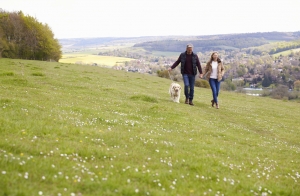





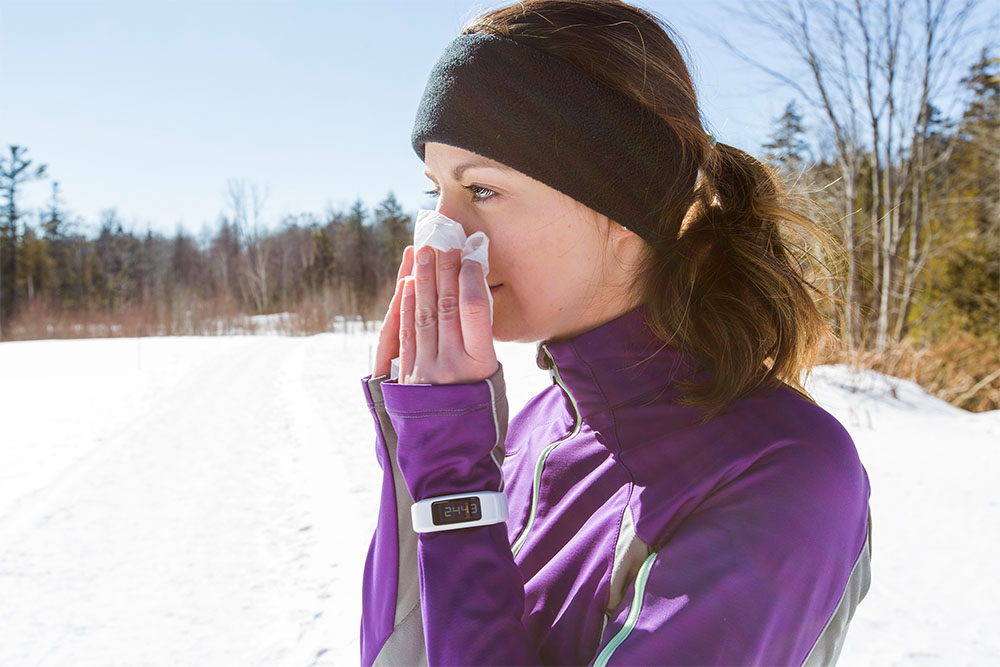
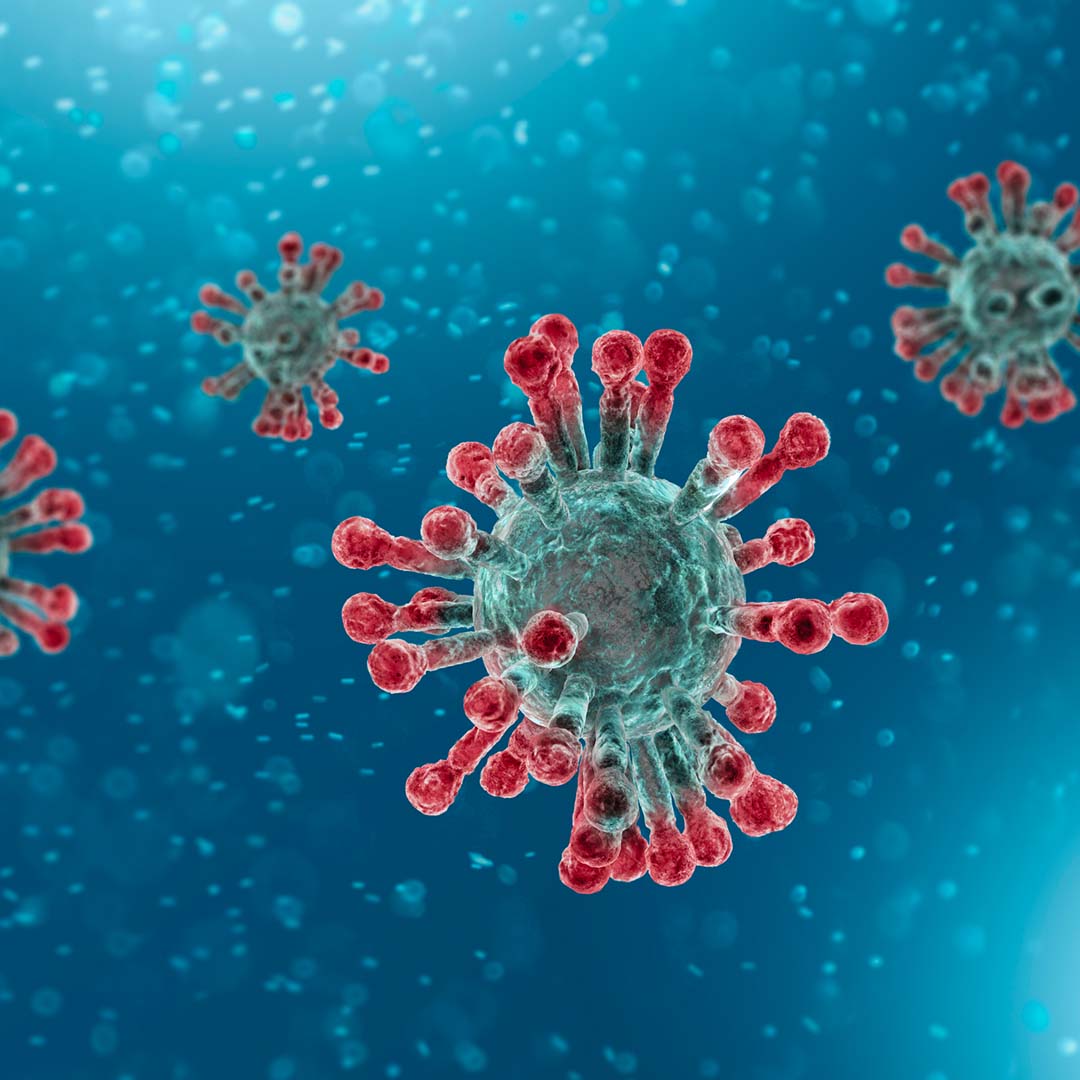
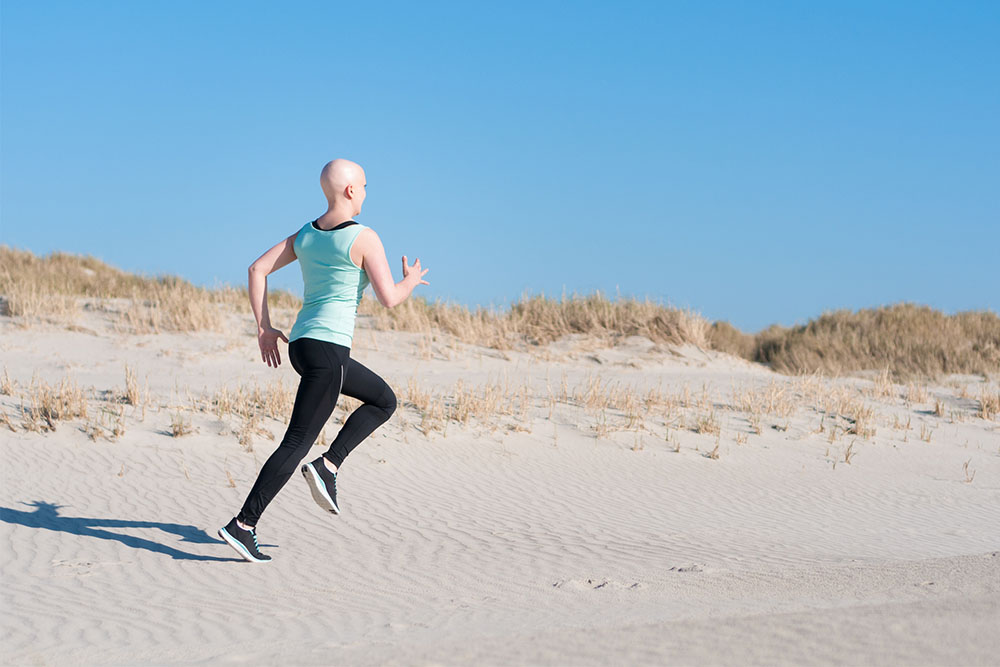








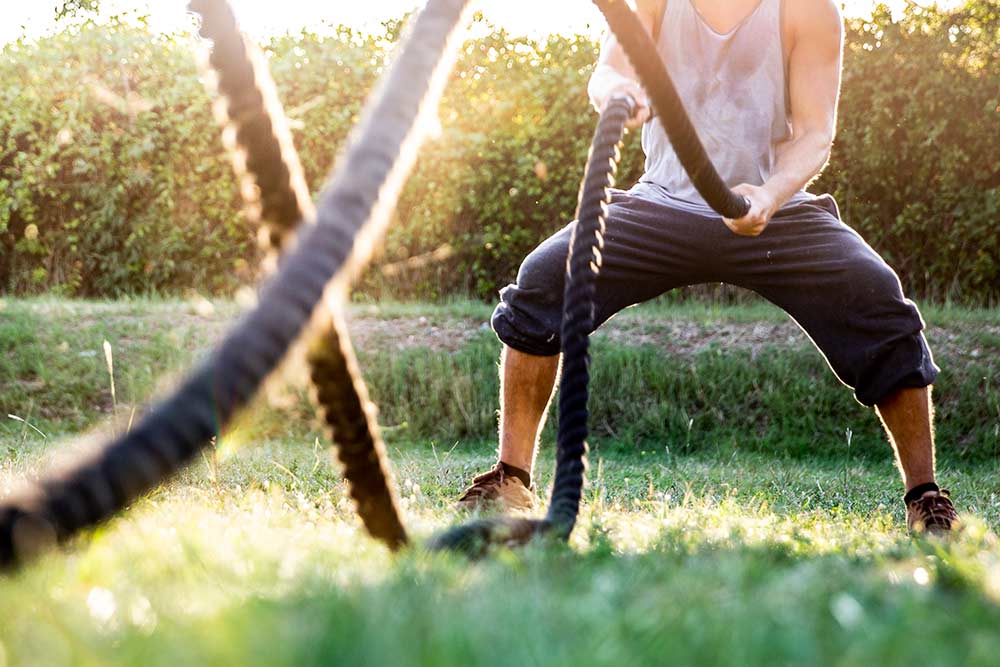
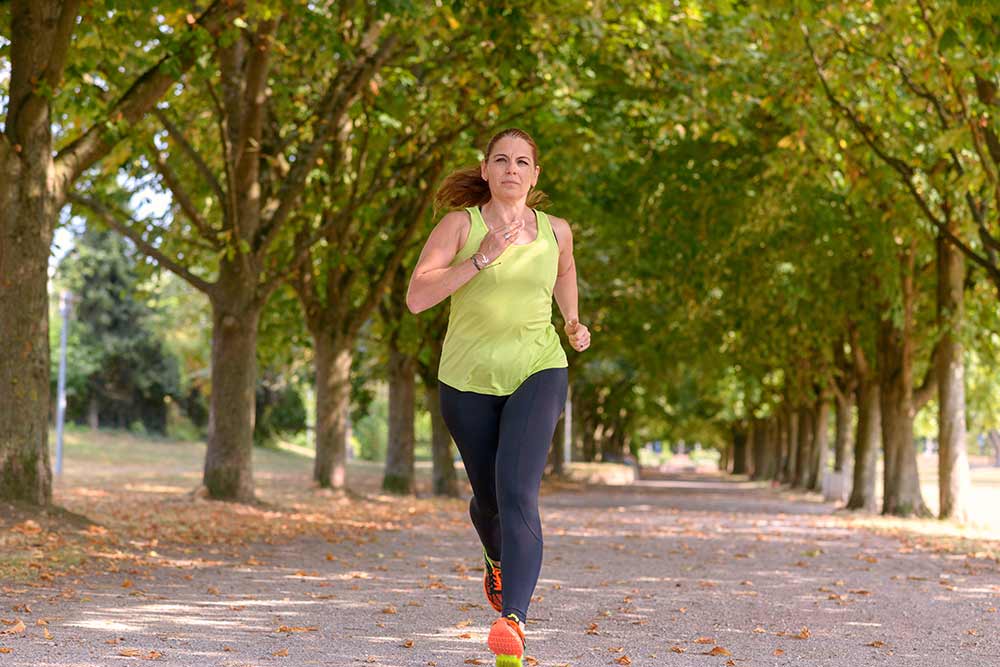


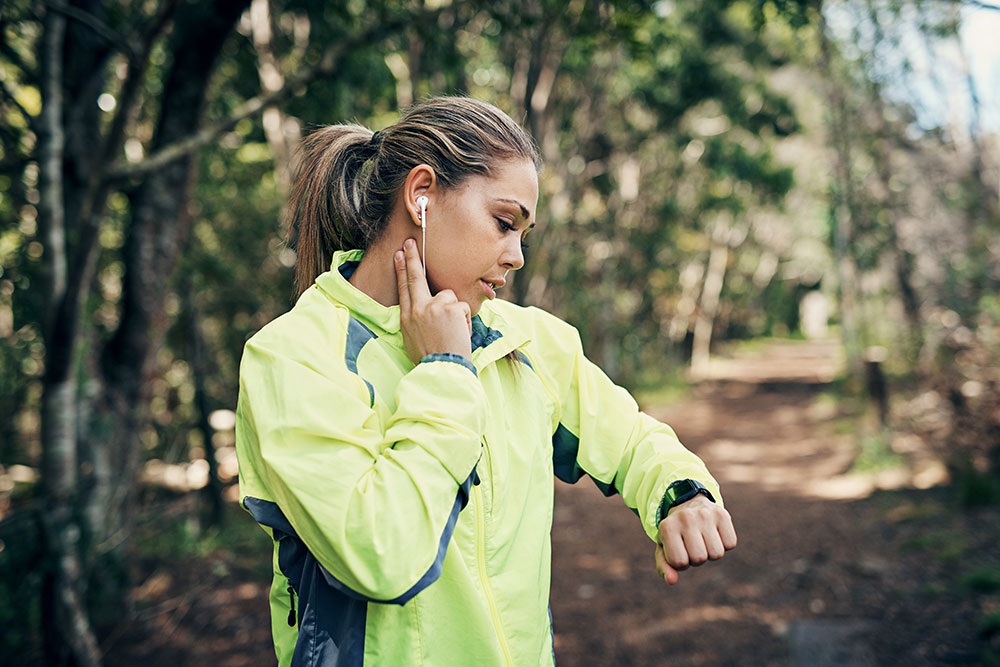

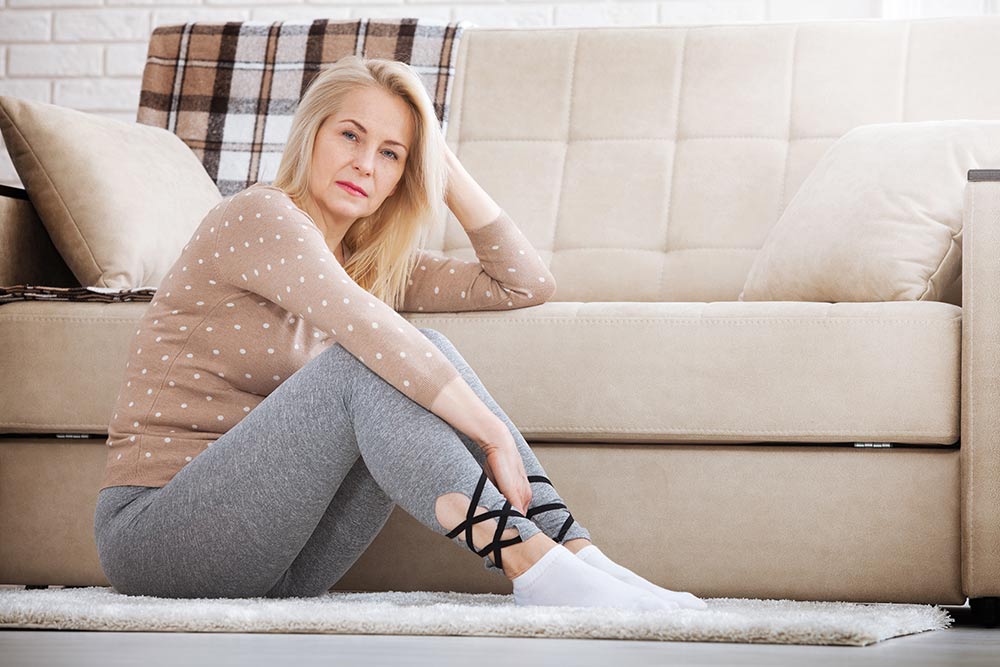








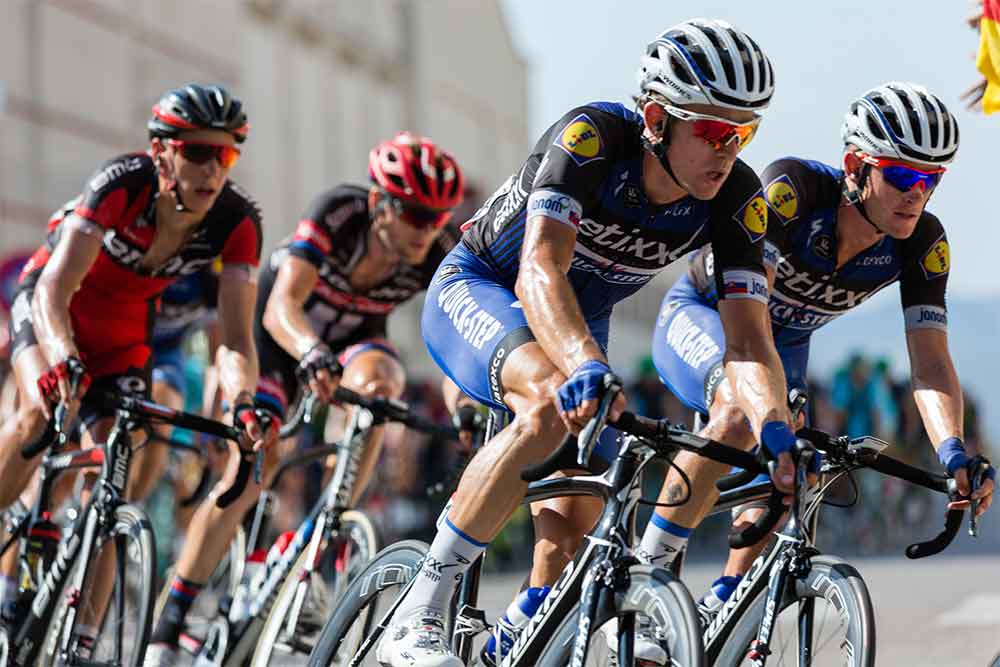











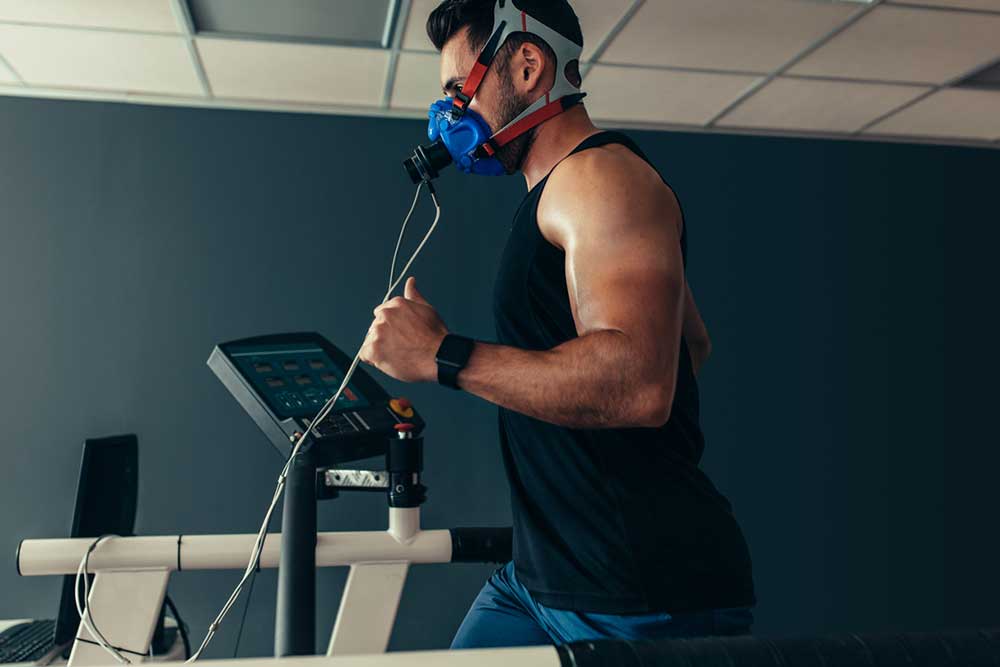

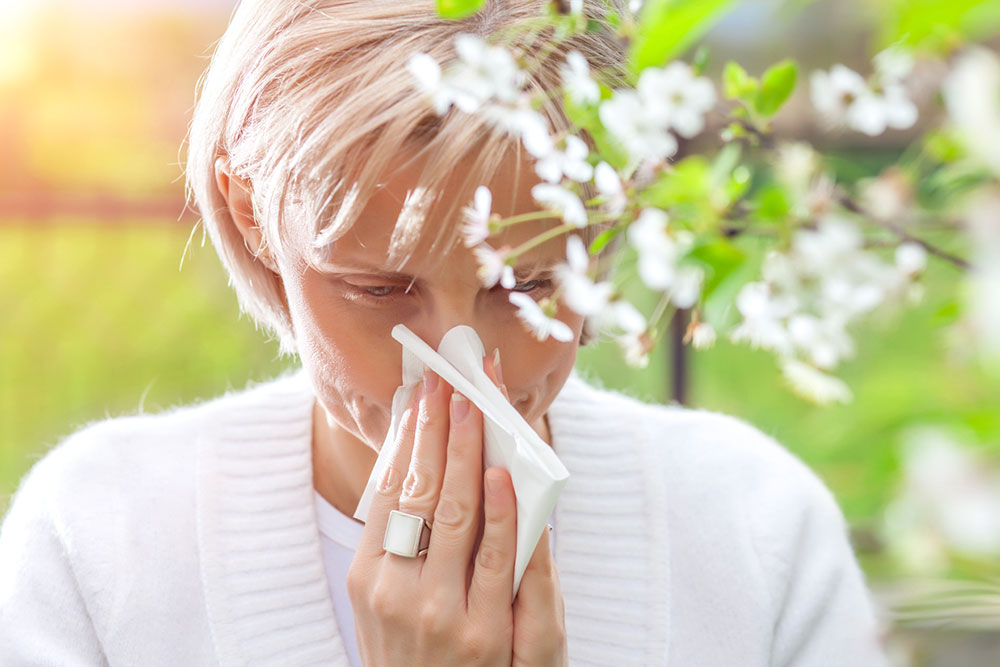



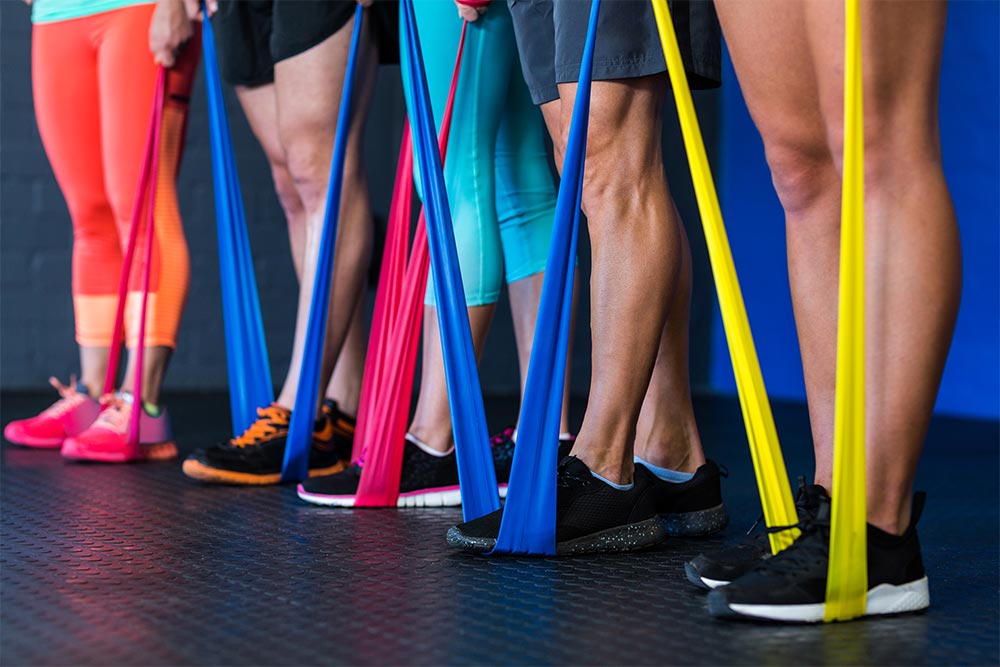
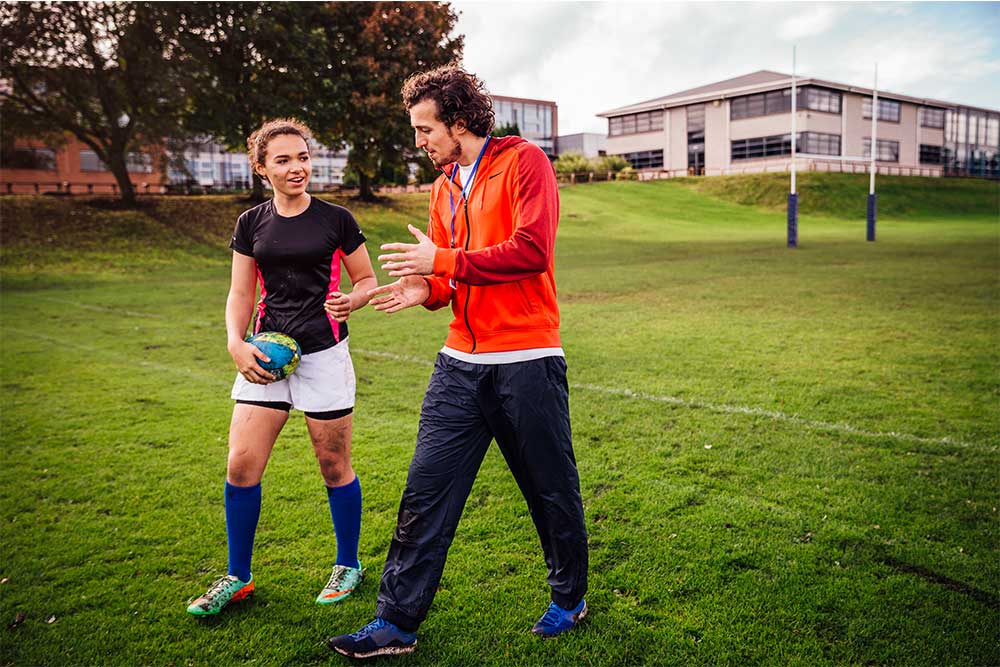
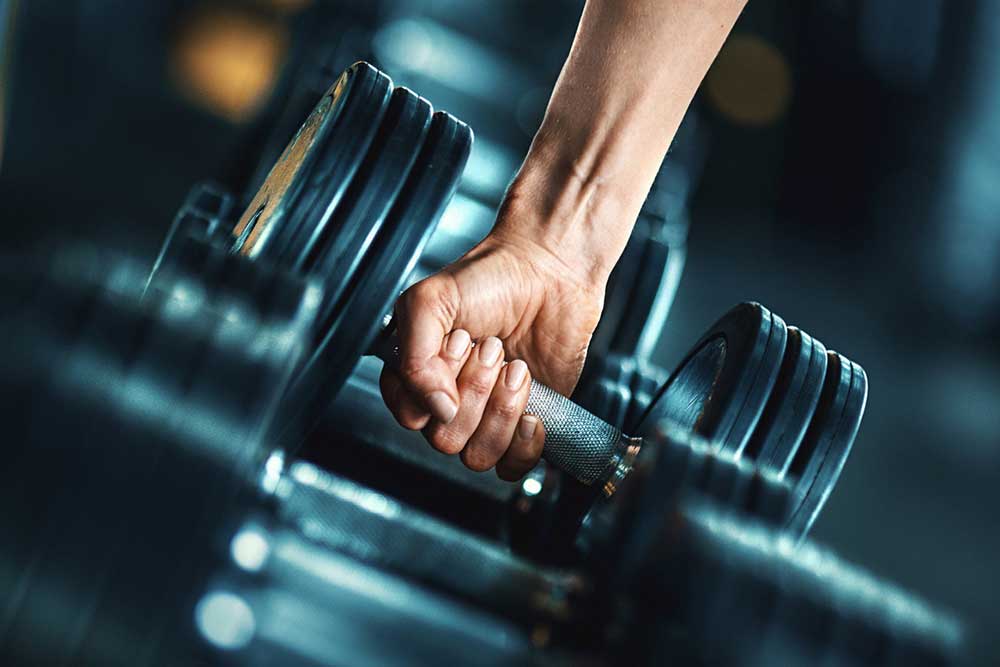






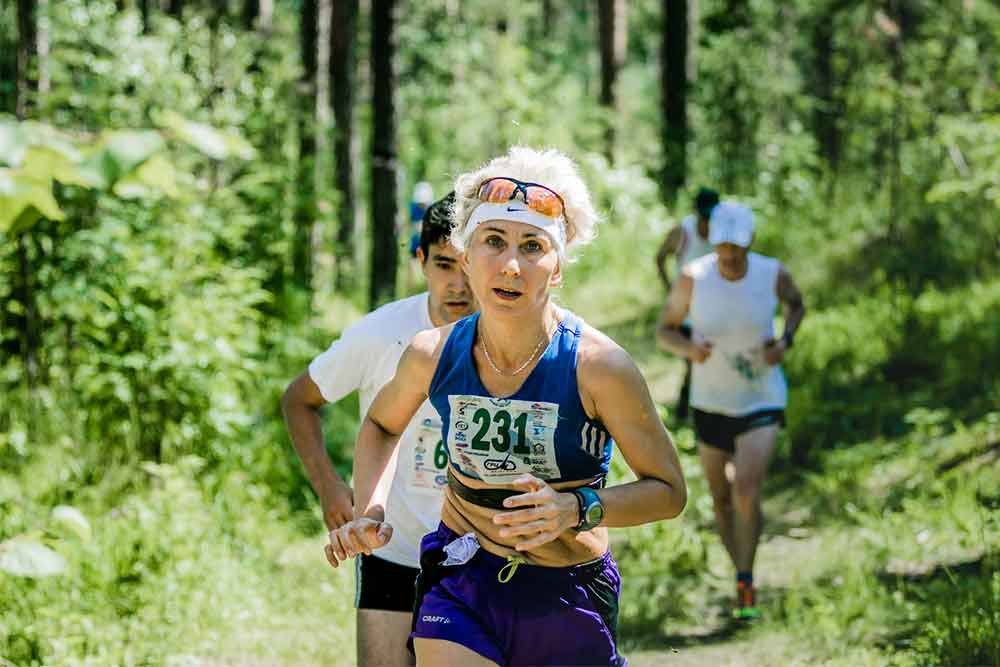










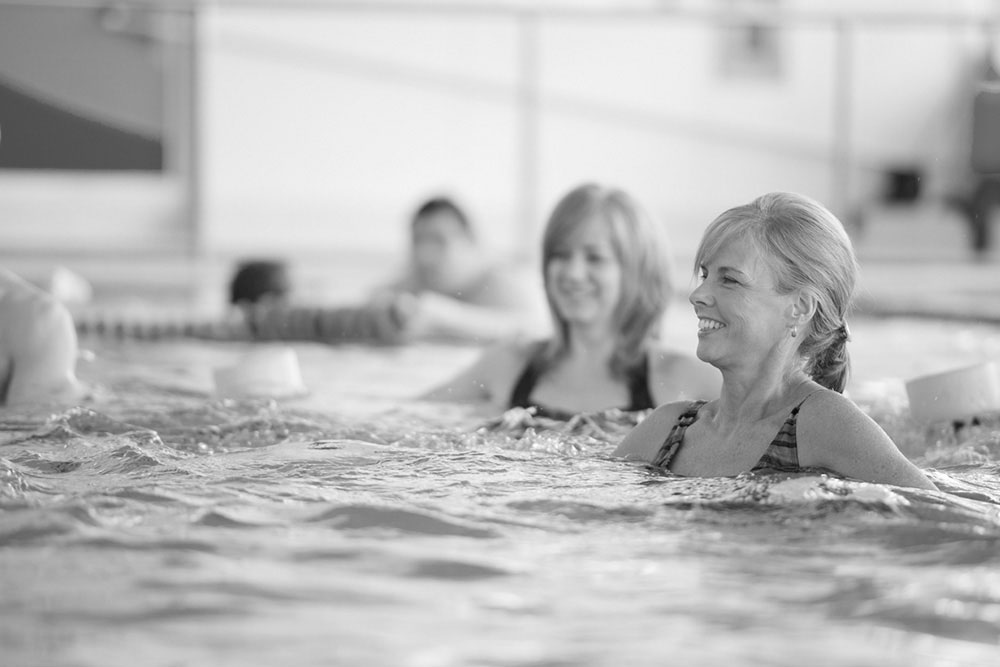






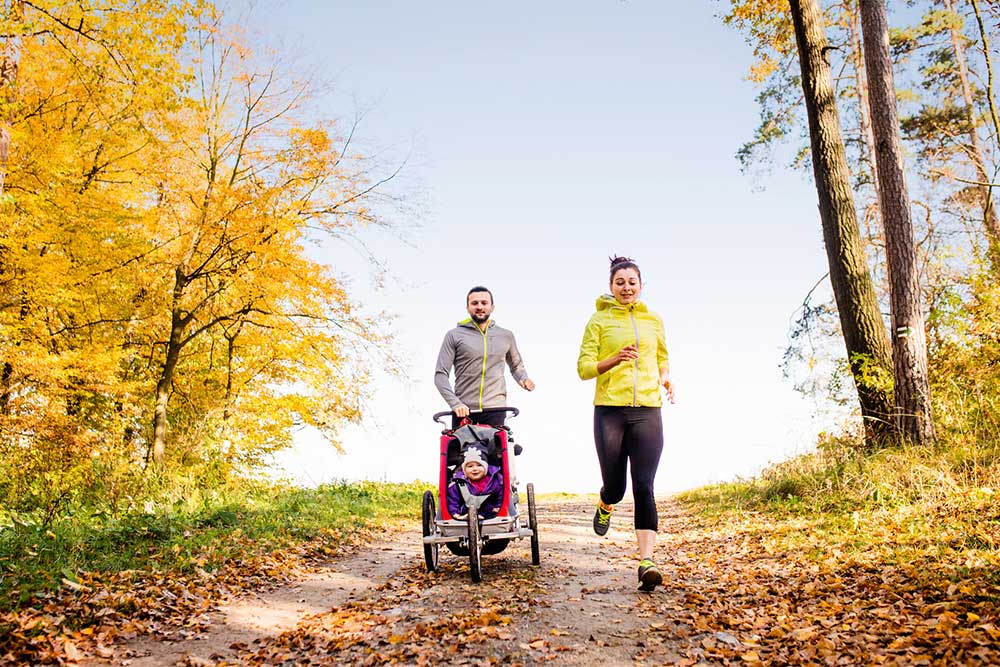










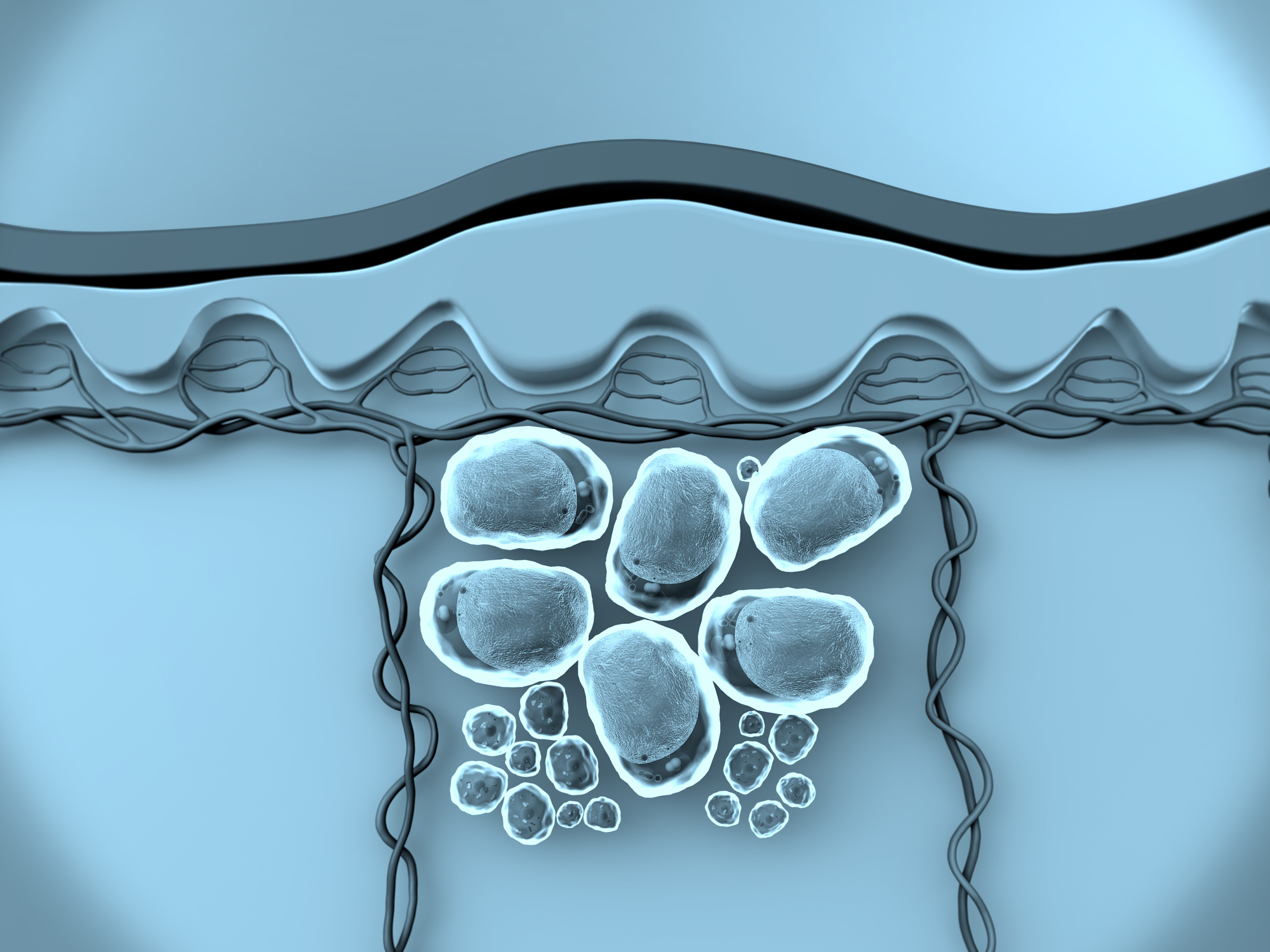
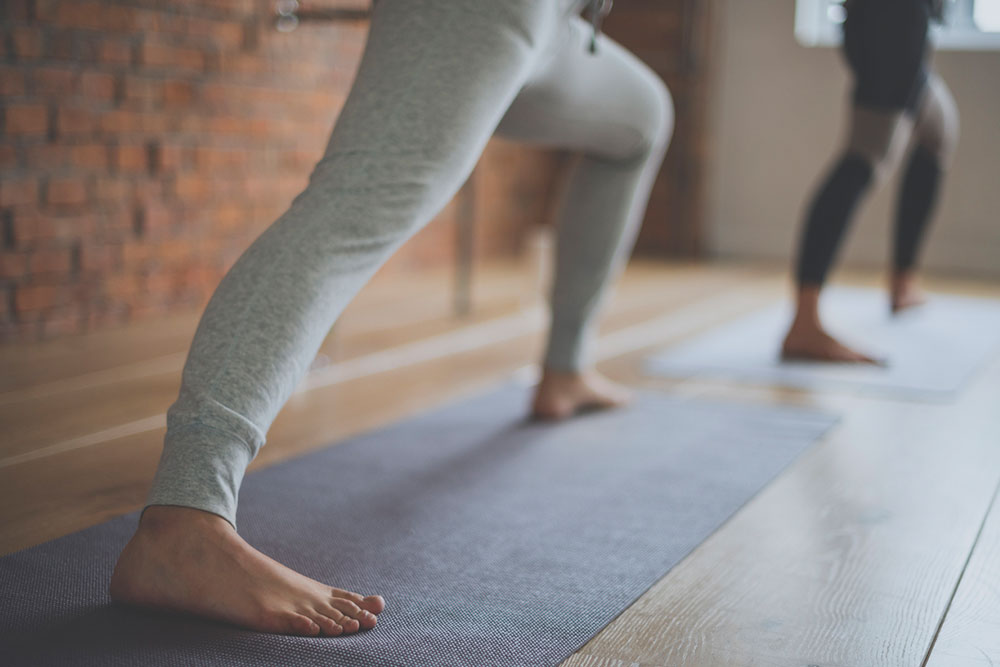
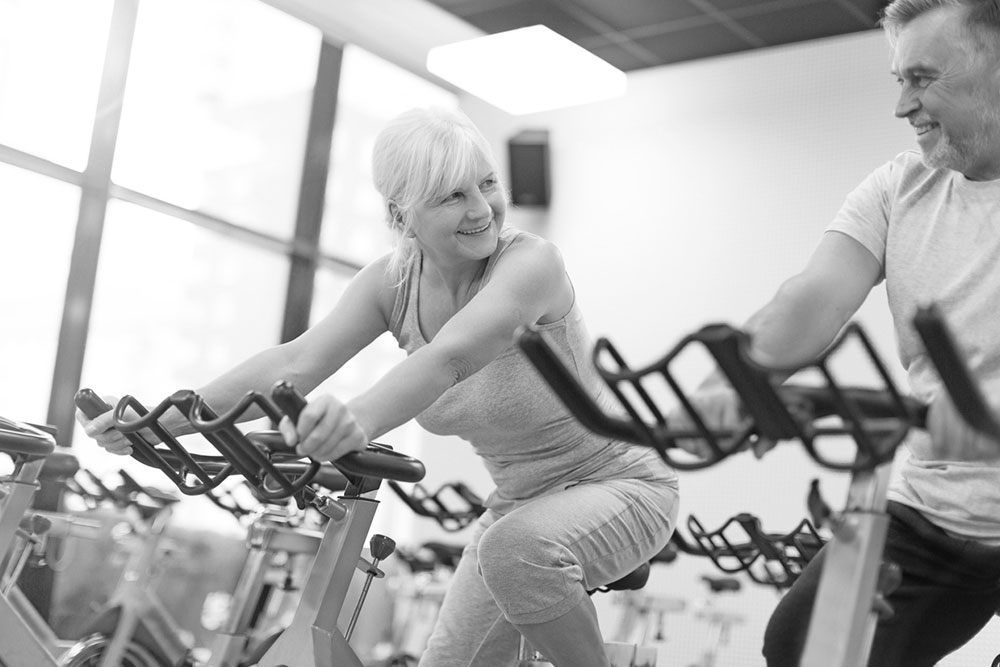

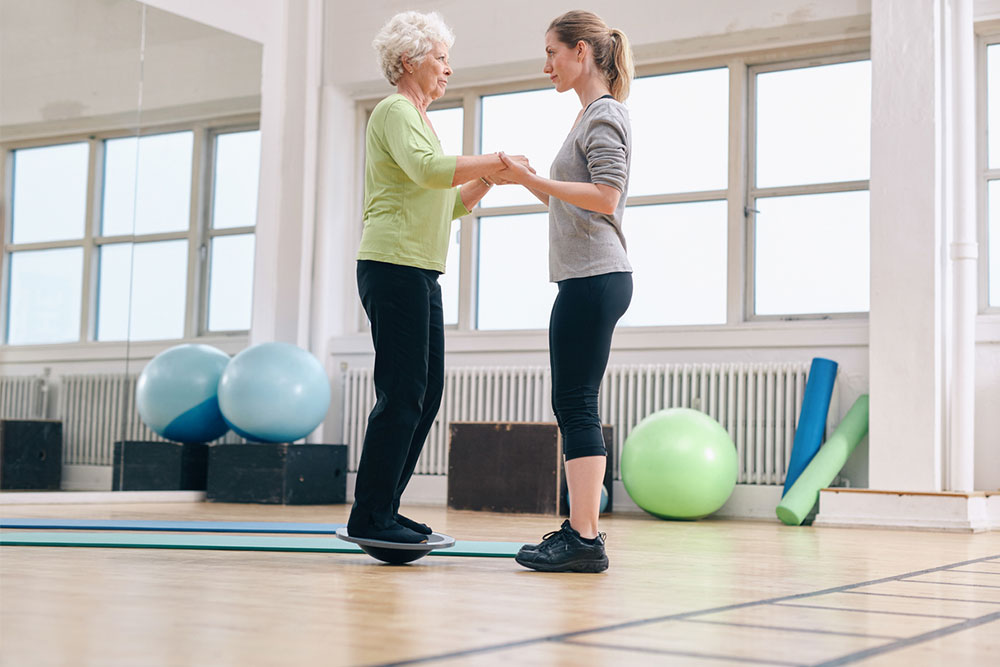
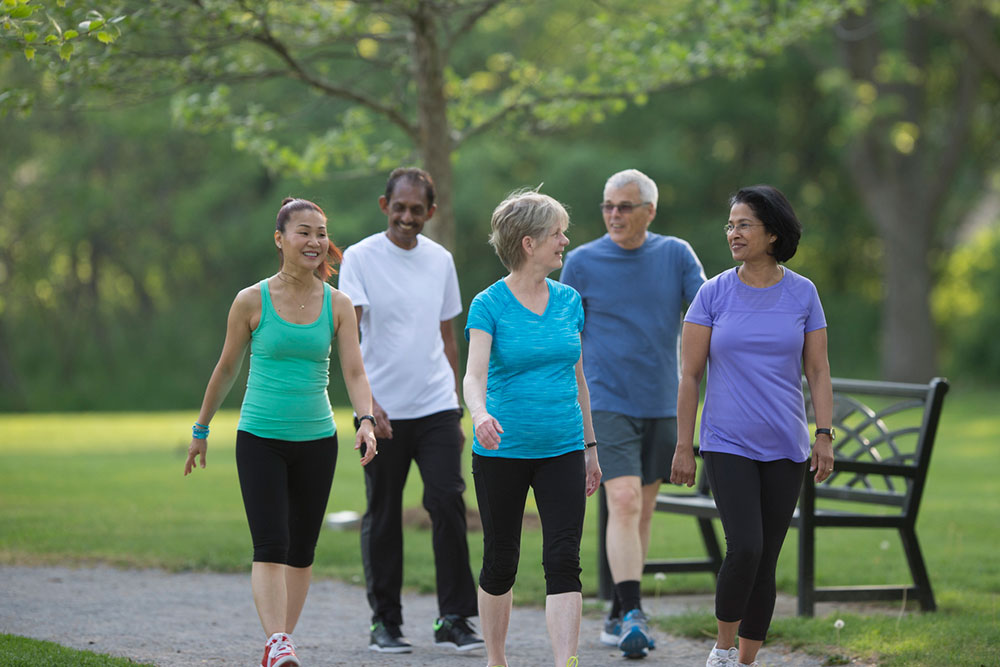
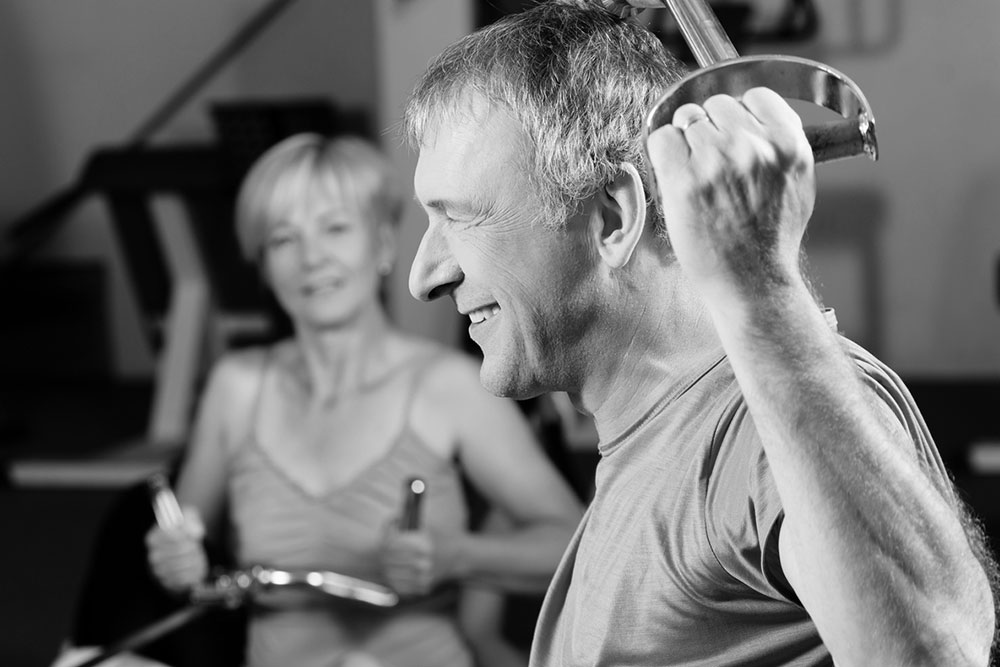
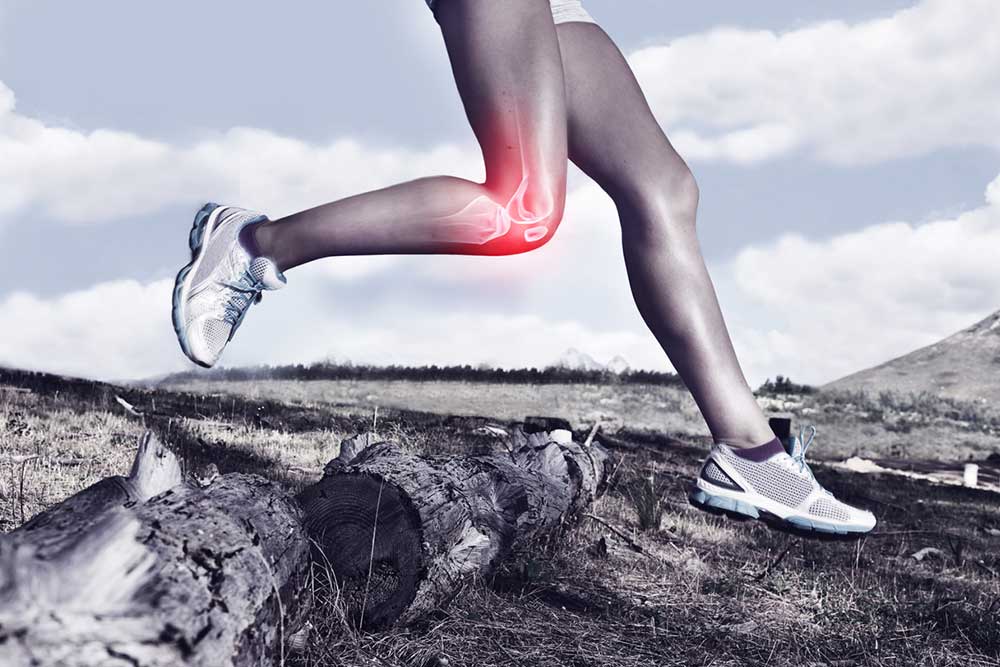
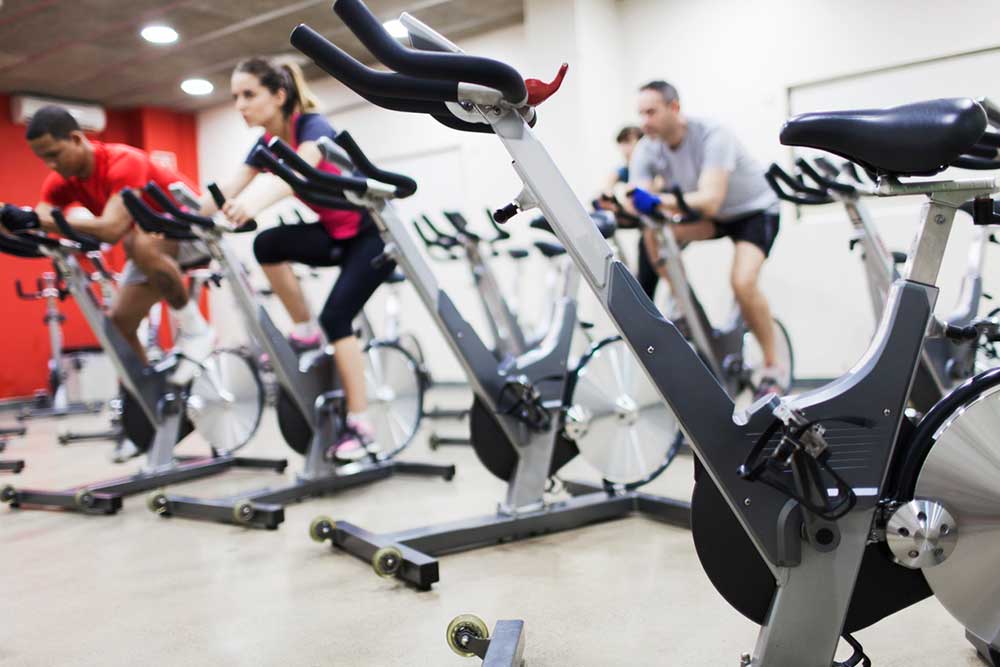

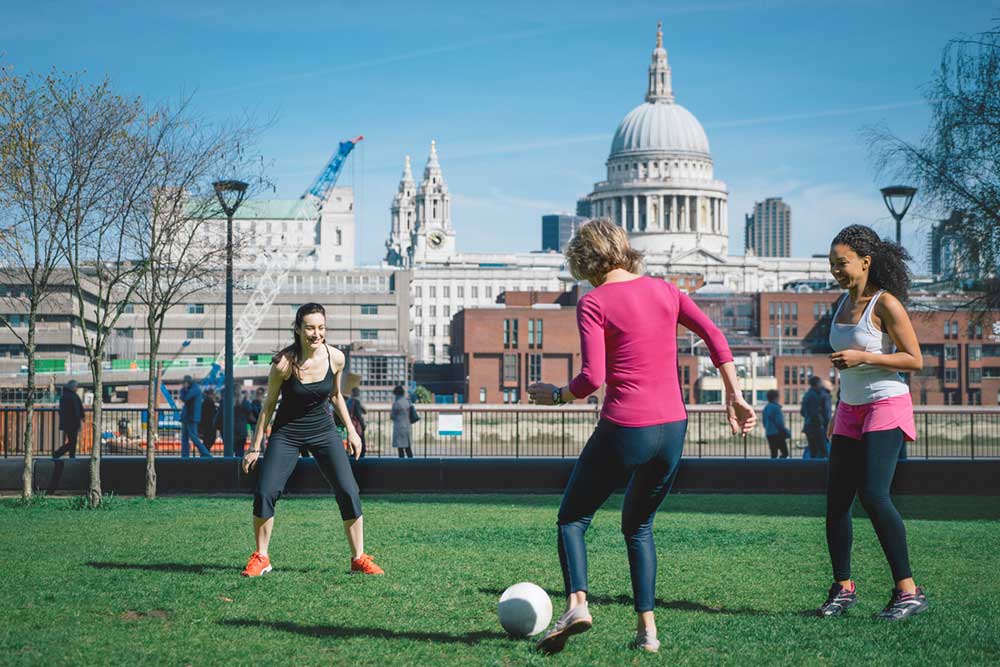

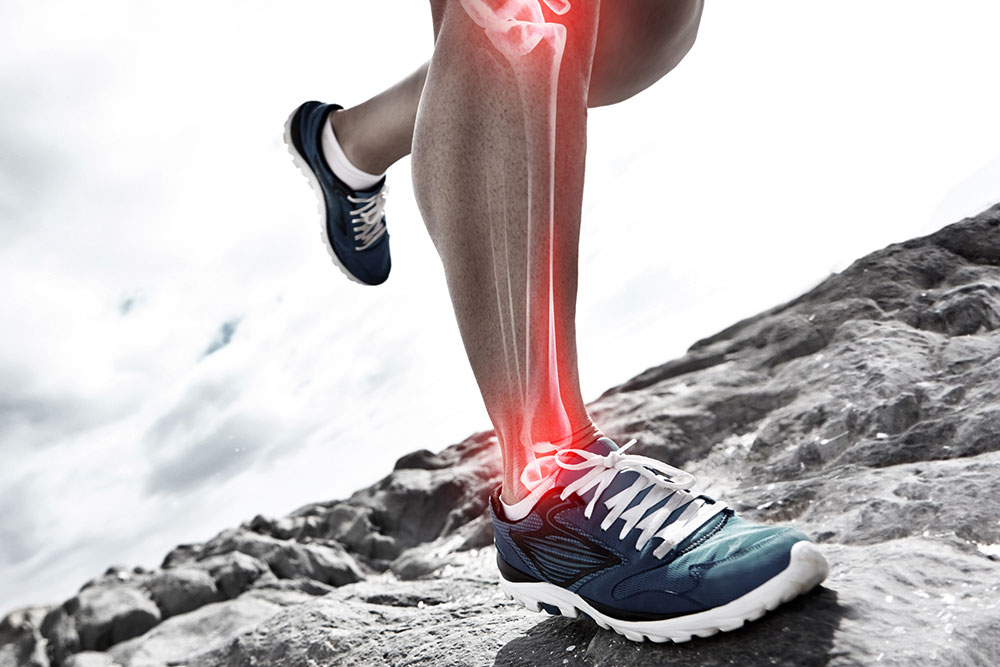





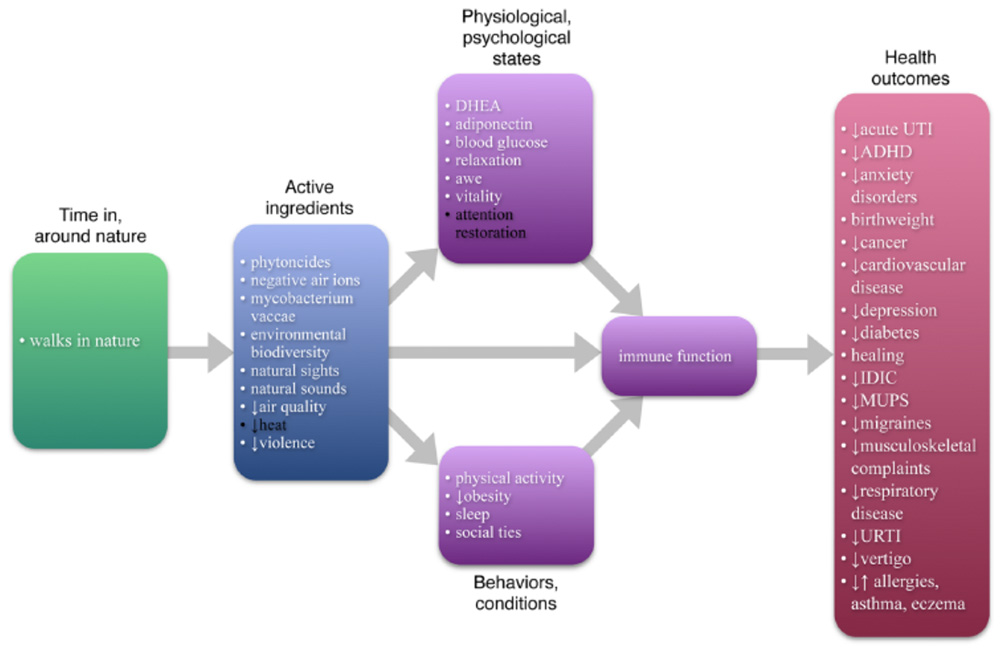


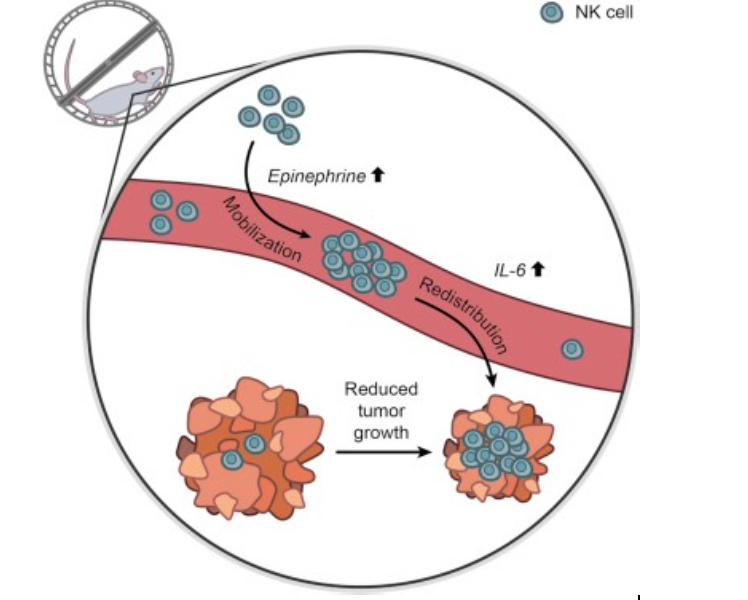


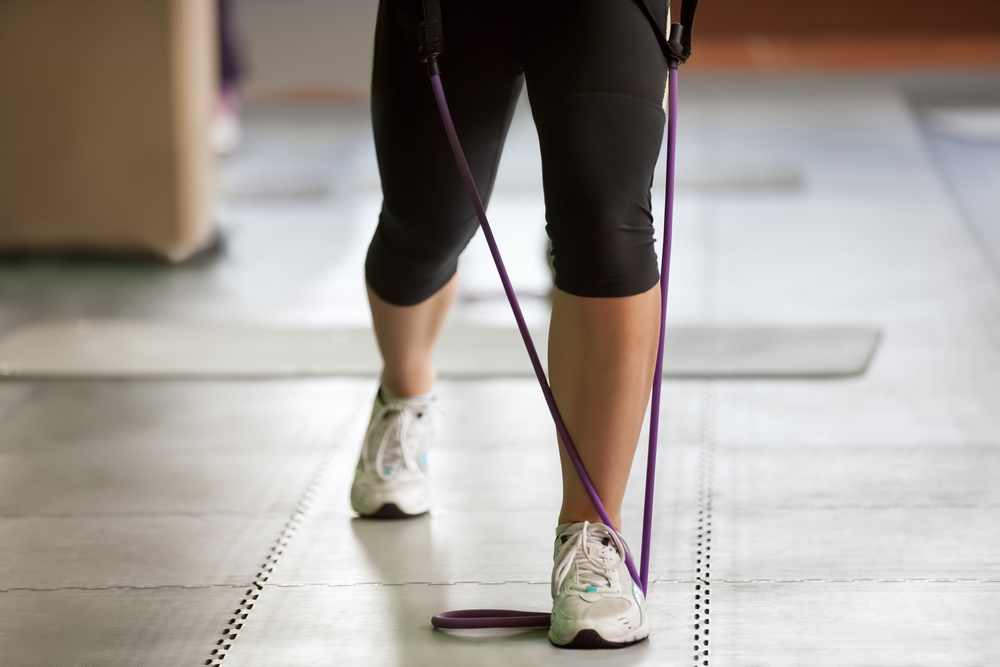
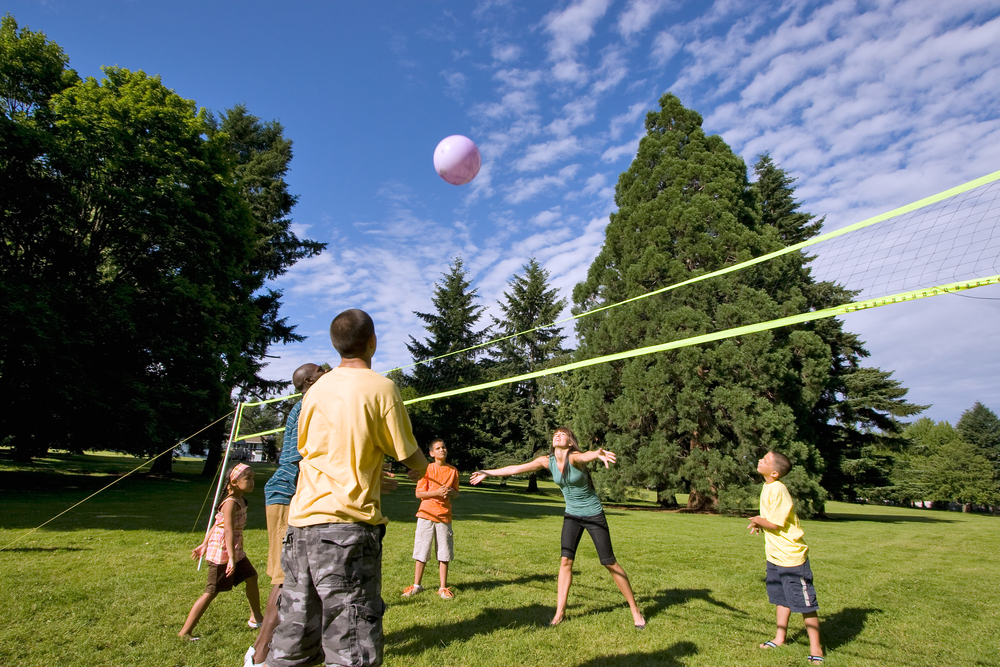
No comments:
Post a Comment